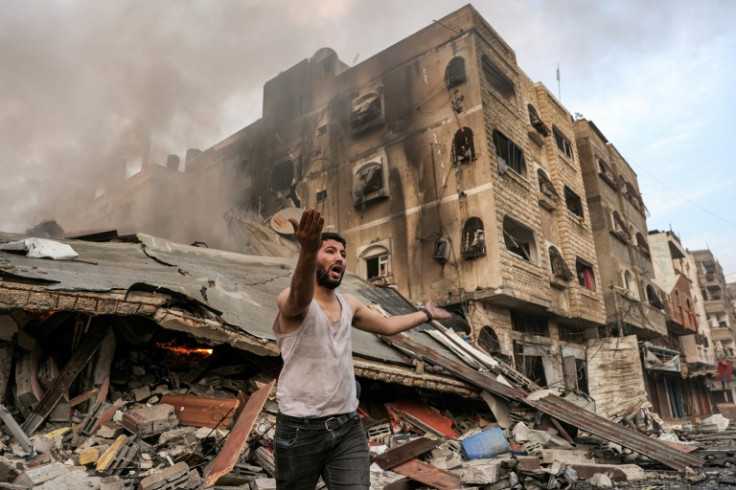IDF And Hamas Dismiss Ceasefire Reports Amid Closed Crossings In Gaza
After being urged to flee to the south of the Strip by Israel, Gazan residents remain desperate for humanitarian aid and are deeply concerned with the Rafah crossing confusion.

It was previously reported that the alleged ceasefire would be used to escort people through the Rafah crossing and into Egypt safely.
But after Israel urged Gazan residents to flee through the south of the enclave, thousands of people ignored the warnings and have remained in the north to avoid being caught up in the border crossfires instead.
Journalists in Gaza have noted that the residents are concerned with the Rafah crossing confusion, which has been closed by Egypt to those fleeing the area.
As of now, the border between Egypt and Gaza is still closed, with Hamas and Israel also dismissing the earlier reports that announced a ceasefire to allow foreign nationals out of the Strip.
Despite the Rafah crossing previously being used as a passage for humanitarian aid to enter the region, all of the crossings have been closed, leaving no way for aid to get in.
On Sunday 17 October, after ordering a "total blockade" on Gaza, Israel announced that it would allow for water supplies to function in the Strip.
However, sources on the ground in Gaza have said that the water supplies are almost out, and the desperation for food, medicine and fuel is continuing to grow.
Around 150,000 litres of fuel have been transferred from Egypt to assist with the running water and sewage pumping stations in Gaza. But still, medical professionals have reported that the lack of fuel will lead to hospitals being unable to function within 24 hours.
With the threat of hospital closures and the reluctance towards a ceasefire, UN officials have called the current situation in Gaza "an unprecedented humanitarian catastrophe".
In Gaza, which was once home to more than two million people, UN Secretary-General for Humanitarian Affairs Martin Griffiths estimates that around one million people have followed Israel's request and have relocated to the south of Gaza.
BREAKING:
— Megatron (@Megatron_ron) October 16, 2023
Israeli strikes on Gaza alone killed over 50 civilians in the morning, most of them women and children.
Hamas responded by announcing the start of the shelling of Tel Aviv, according to the Palestinian Foreign Ministry pic.twitter.com/SppcyrRdkZ
On the Gaza side of the Rafah crossing, sources have reported that there are huge crowds of Palestinians with foreign passports waiting to leave the enclave.
Calling the lack of humanitarian aid being passed through to civilians in Gaza a breach of international humanitarian aid laws, Griffiths also demanded: "We need aid in. We need clarity about places of safety which will ... not be attacked, will not be a part of the war between the two sides and, of course, we need a corridor which people can rely on."
Urging both Hamas and the Israeli Defence Force (IDF) to agree to a ceasefire, he added: "Movement needs to be voluntary; it needs to be accompanied by humanitarian assistance, it needs to be safe — so, please, no bombing as they move."
Griffiths also told BBC Radio 4's Today programme that the UN are, "in detailed discussions, by the way, with the Israelis about all of those issues".
At a meeting in Baghdad, Ahmed Aboul Gheit, the Secretary-General of the League of Arab States, has also called on the IDF and Hamas for an immediate end to military operations in Gaza.
Pleading for civilians to be provided with emergency aid, Gheit said: "We demand the immediate end of military operations and the opening of safe corridors to bring aid to the population."
According to the Palestinian journalist's union, since Israel formally declared war on Gaza on Saturday 7 October, 11 reporters have been killed in the Strip.
As a result of the attacks on the enclave, at least 2,329 Palestinians have also been killed and 9,714 people have been injured in Gaza.
In the West Bank, the death toll has climbed to 54. A huge 1,100 people have also been wounded in the West Bank since the conflict escalated last week.
In Gaza, the authorities have also reported that more than 1,000 people are missing under the remains of fallen buildings that have been destroyed by Israel's retaliatory air raids.
© Copyright IBTimes 2025. All rights reserved.





















